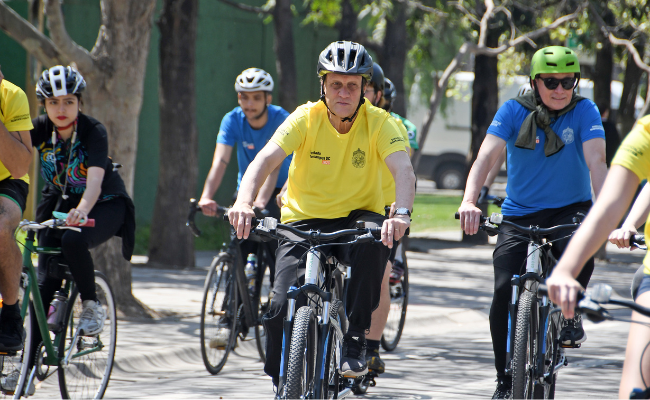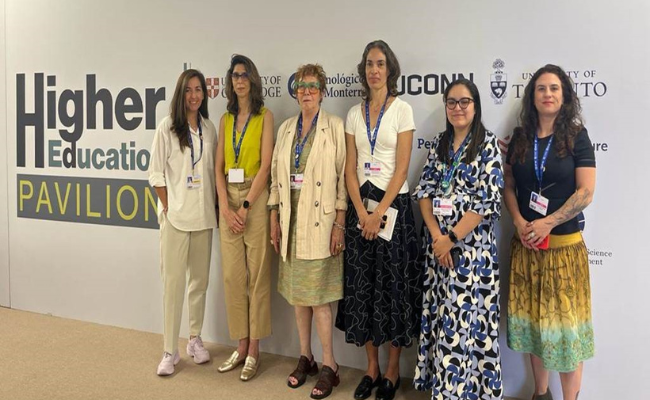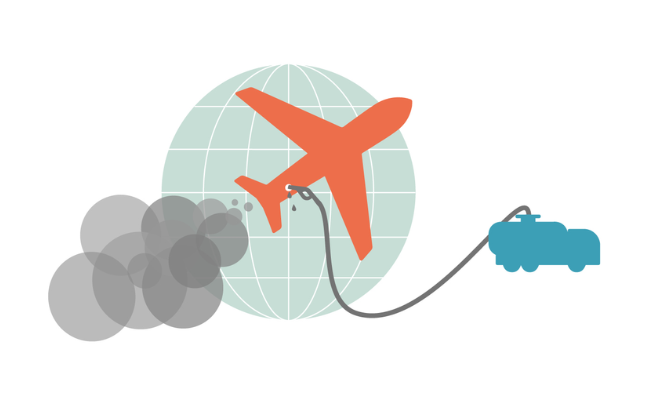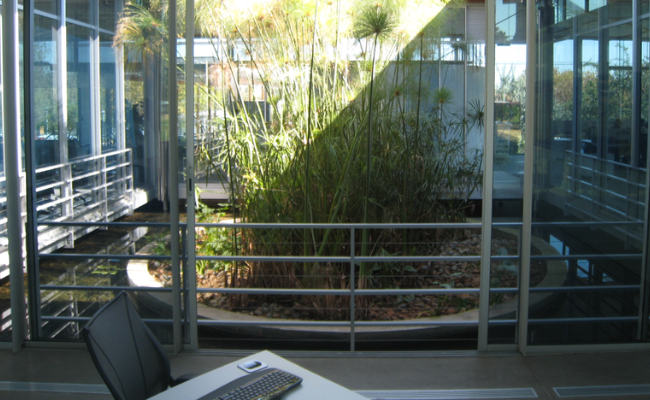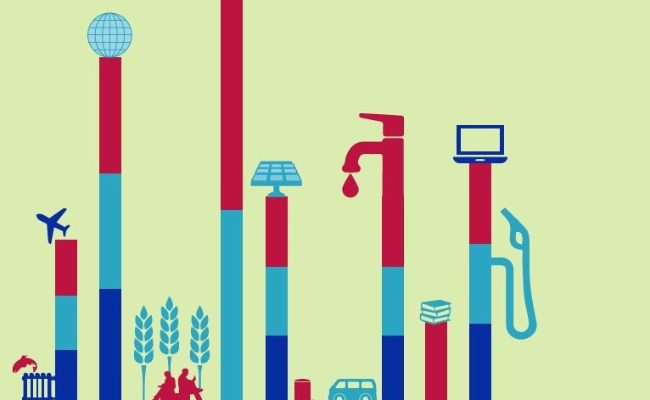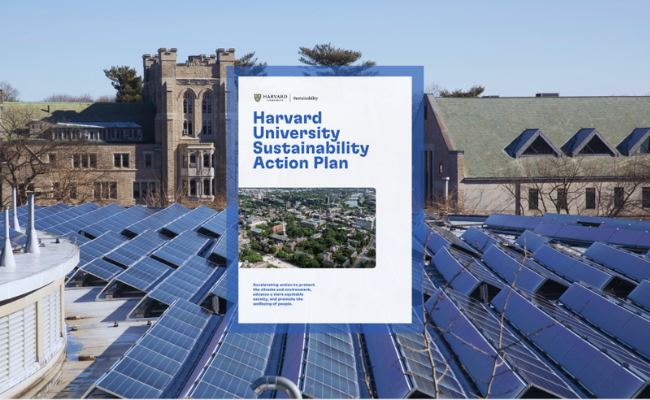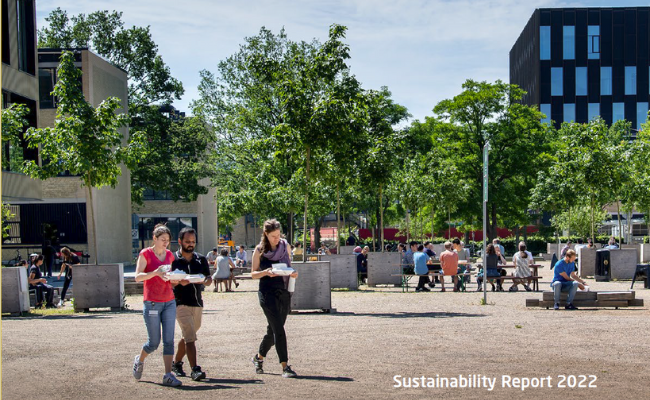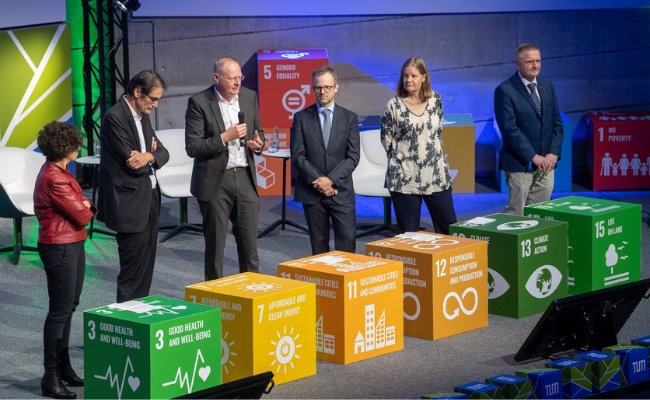UBC Micro-certificate in Climate Action Planning
The importance of climate action is being increasingly recognized. Around the world, we're moving towards the whole-of-society shared responsibility that has for so long been identified as the scale needed. And with greater levels of adoption comes a greater demand for the climate change action and planning skills necessary to drive implementation.
The UBC Micro-certificate in Climate Action Planning: Foundations, Finance and Implementation is a part-time, online credential that equips you with the knowledge and tools to start creating a customized plan to achieve your organization’s or community’s climate action mandate. Use your sphere of influence to work towards the achievement of emissions reductions targets at national, provincial and local levels.
Developed by a team of faculty and experts associated with UBC’s Institute for Resources, Environment and Sustainability, Sustainability Hub and Campus + Community Planning, and made possible by funding from UBC's Continuous Learning and Advancement Fund and the Pacific Institute for Climate Solutions, the UBC Micro-certificate in Climate Action Planning: Foundations, Finance and Implementation is designed to help policymakers, planners and industry players gain the knowledge, skills and tools to put into practice.
In 50 hours of virtual classes and study over 12 weeks, gain an in-depth understanding of key elements of a successful climate action plan, including mitigation and adaptation strategies to help us meet the Emissions Reduction Plan and Government of Canada Adaptation Action Plan targets, the critical need for climate justice and equity, and financial implications and opportunities. Through action-oriented lectures, readings and practical activities, develop the skills to take on a crucial role in today’s world.
The Fall 2024 cohort will receive instruction from experts with extensive experience in designing a climate plan for policymakers, industry and community organizations including:
- Sara Elder, PhD is a senior policy advisor, International Institute for Sustainable Development (IISD) and an Adjunct Professor at the Institute for Resources, Environment and Sustainability at UBC.
- Eric Mazzi, PhD, is a consultant and educator focusing on technology and policy for industrial and commercial demand-side energy systems. He provides technical analysis, measurement & verification (M&V), policy studies, and educational services.
- Milind Kandlikar, PhD, is Professor (and past Director) at the Institute for Resources, Environment and Sustainability, with a cross-appointment at the School of Public Policy and Global Affairs at UBC.
- John Madden is Director of Sustainability and Engineering for Campus + Community Planning at UBC.
Ready to integrate climate action for policymakers, industry players and planners into your career? Register today or learn more at our info session on July 24 from 12-1pm Pacific Time.
Pathways to Carbon Neutrality: UC Chile Climate Action Strategy
The current global climate crisis, in which global warming is on the verge of exceeding the 1.5°C threshold this century, necessitates immediate action. In this urgent context, UC Chile joined the global challenge of halting the progress of climate change, committing to become a carbon-neutral university by 2038, coinciding with its 150th anniversary and advancing 12 years ahead of the national target planned for the year 2050.
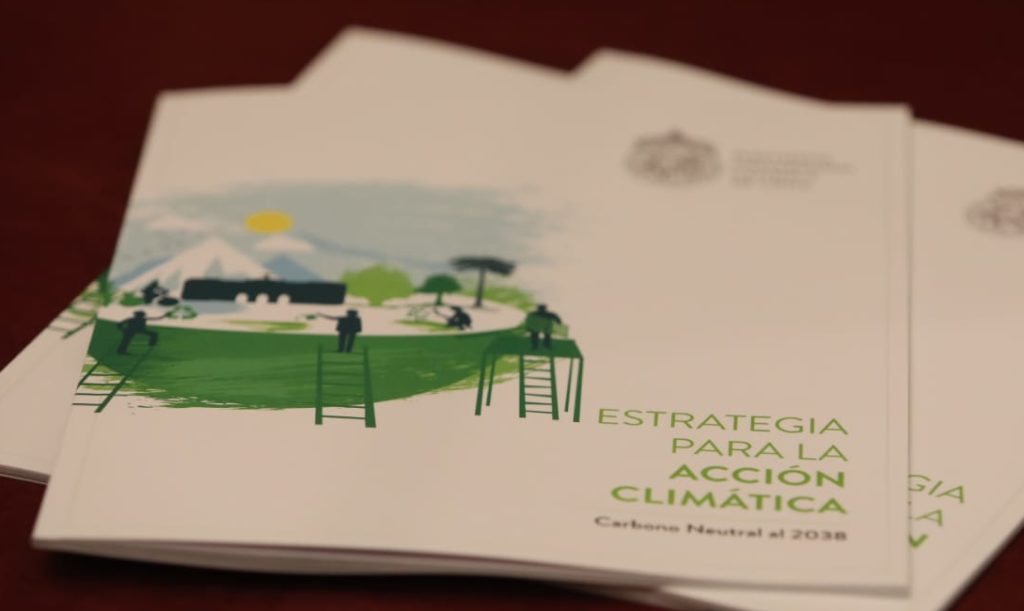
Since 2020, extensive work has been carried out in 10 thematic areas with the participation of academics, administrative staff, and students, guided by coordinators and the UC Climate Action Council, with the aim of developing the UC Climate Action Strategy presented in 2023.
"We know that significant solutions must primarily come from high-level political decisions, but we also understand that every effort counts. UC Chile's commitment to reducing pollution is creating a new culture within the university and, most importantly, a culture that impacts society as a whole."
UC Chile Rector Ignacio Sánchez (pictured above in yellow)
To guide the strategy development process, the university created a Climate Action Council, which includes directors of management units, research centers, academics, and students. This council has the responsibility to monitor progress and guide next steps in finding new solutions to reduce institutional carbon emissions.
The Strategy encompasses the implementation of 18 projects related to energy and construction, transportation and travel, water and biodiversity, waste, education, research, and culture. While the main objective is to achieve carbon neutrality, the university decided to incorporate components of adaptation and resilience, as well as aspects of education, research, and culture inherent to a higher education institution.
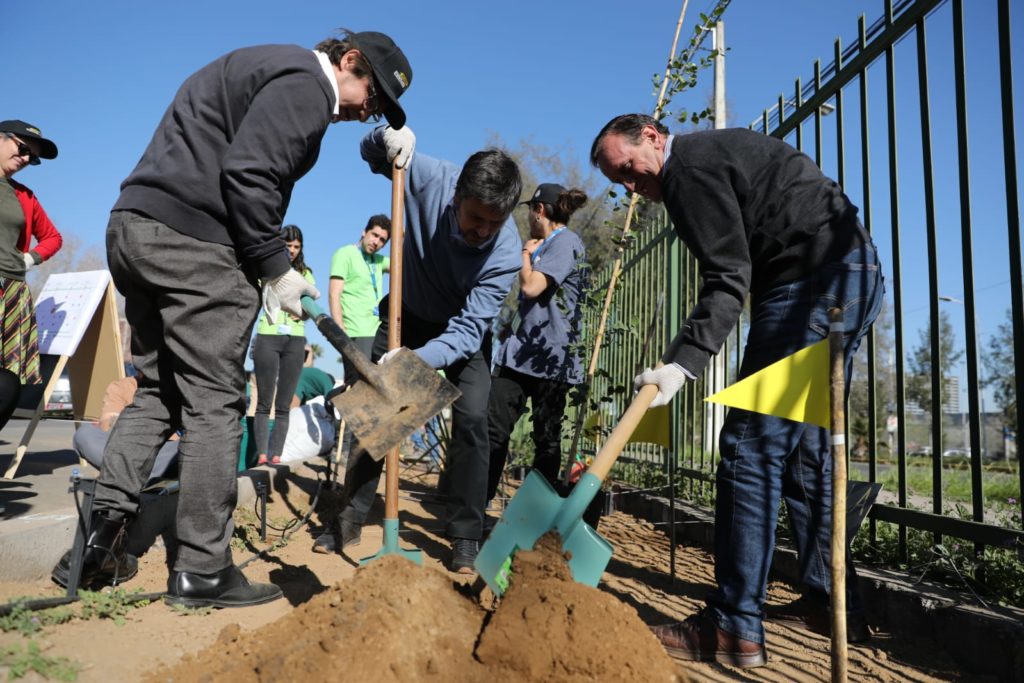
Several projects have been implemented, such as the creation of a new energy management system and initiatives to promote electromobility. Soon, a competition for energy efficiency for administrative and academic units will be launched. Throughout 2022 and 2023, participatory forestations were held on the San Joaquín campus, the largest campus at UC Chile and visited by over 30,000 people daily. Six hundred members of the UC community participated.
Travel and daily transportation account for over 70% of the university's carbon footprint. To address these issues, the Global Mobility Office and the Sustainability Office have initiated joint efforts to reduce the impact of global mobility, implementing initiatives such as a Green Guide for exchange students, a new Seed Fund financed by student exchange trips, and a forthcoming platform for travel registration and carbon footprint calculation.
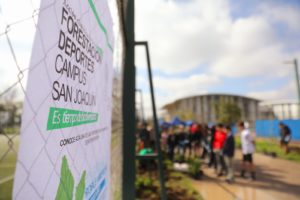 Currently, the university is assessing progress in implementing the strategy and exploring additional projects that contribute to climate action. Additionally, it is consistently implementing programs, activities, and campaigns aimed at fostering sustainability awareness within the university.
Currently, the university is assessing progress in implementing the strategy and exploring additional projects that contribute to climate action. Additionally, it is consistently implementing programs, activities, and campaigns aimed at fostering sustainability awareness within the university.
Empowering Sustainability: Ruta Azul Student Committee at Tec de Monterrey
The Ruta Azul Student Committee, (National Student Sustainability Committee), is a joint effort between Ruta Azul, the Sustainability and Climate Change Plan, and the Student Leadership and Development Office (Student Affairs) at Tec de Monterrey. Encompassing student representatives across 26 campuses from both high school and university, the committee is dedicated to addressing sustainability challenges and amplifying student engagement in sustainability and climate action.
The representatives are part of Student Groups and the Student Government, and are entrusted with representing the student community, aiming to ensure a collective approach to sustainability concerns.
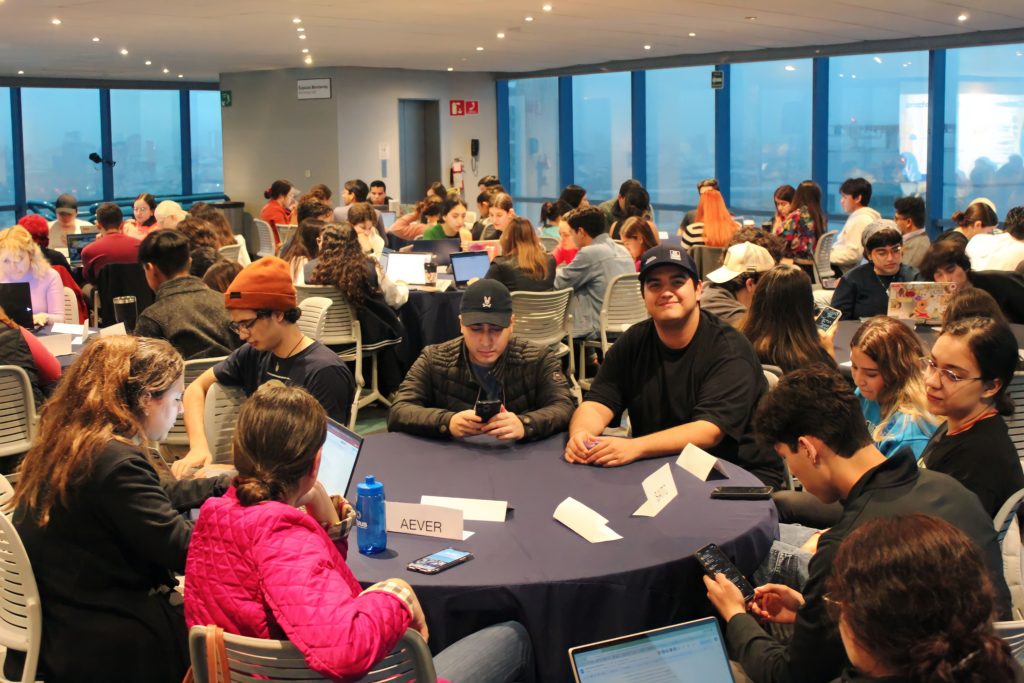
First Generation (2022 – 2023)
The inaugural cohort (2022-2023), initiated in October 2022 with 32 students, embarked on the ambitious task of designing a national project to propel Tec’s sustainability goals. This endeavor resulted in the creation of the En Ruta: Declaration of Sustainability of Student Groups. From February to April 2023, the committee conducted surveys and workshops in all campuses to gather the vision of Student Groups surrounding sustainability, and organized events such as reforestations and zero-waste workshops to complement the efforts.
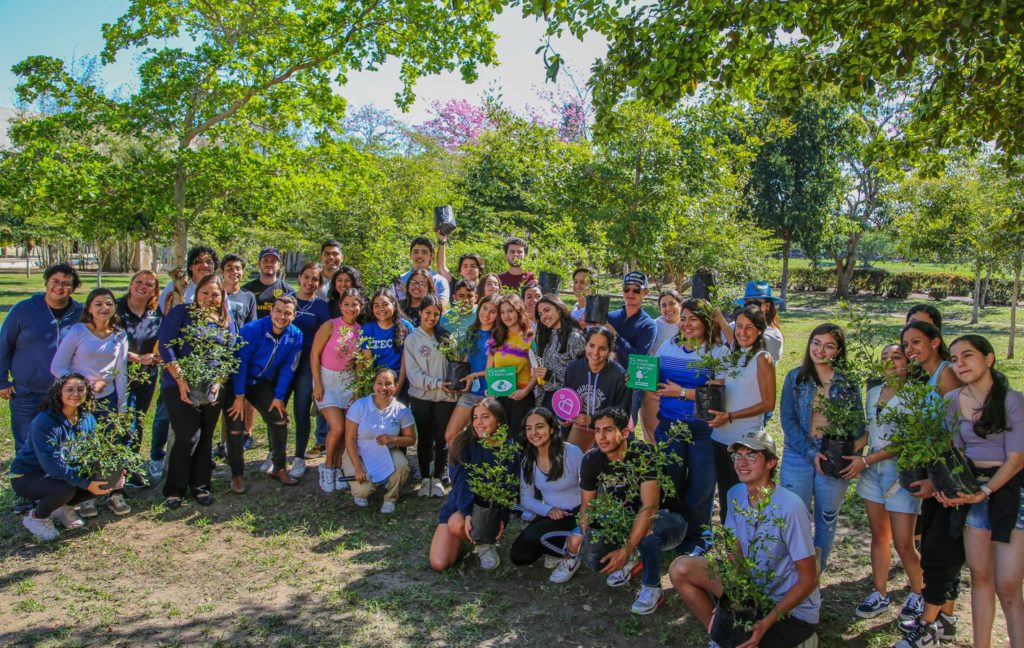
During the second anniversary of the Sustainability and Climate Change Plan in April 2023, the committee presented the declaration, pledging to the following key commitments:
- Cultivating a proactive culture in climate emergency awareness among Student Groups.
- Empowering future Student Group members to implement sustainable actions in event planning.
- Integrating climate change and sustainability into semester plans and annual project activities.
- Encouraging specialized groups and committees within Student Groups to address sustainability issues.
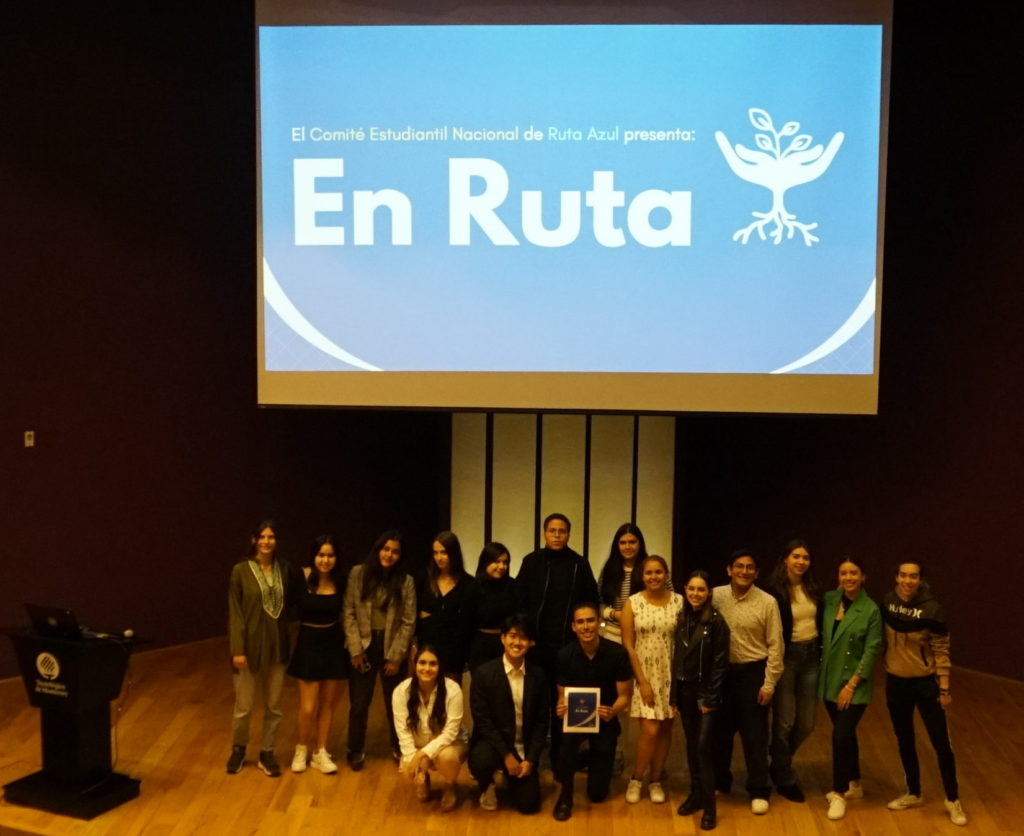
Second Generation (2023-2024)
In September 2023, the new cohort of the Ruta Azul Student Committee, consisting of 54 students, began their operations. En Ruta: Declaration of Sustainability of Student Groups was the cornerstone for the ongoing efforts of the 2023-2024 cohort, inspiring the decision to update the Sustainable Events Guide for students. This document is the student version of the institutional Sustainable Events Guide and serves as set of guidelines for sustainable actions in all events organized by students.
Between January and May 2024, the committee will work closely with Ruta Azul in updating the guide, to make sure student’s need and ideas are included and recognized.
The ultimate vision of the committee is to nurture a student community committed to sustainability. The Ruta Azul Student Committee is a clear example of the university’s efforts to engage its community.
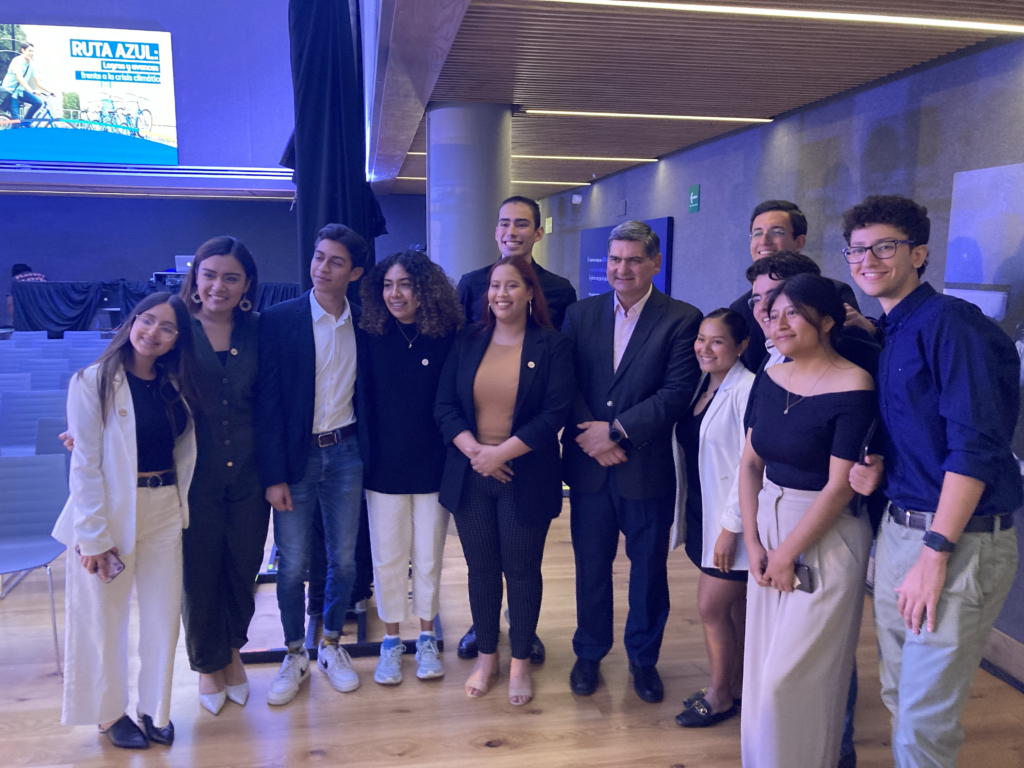
ISCN Members at COP28
At this year’s COP28, the Higher Education Sector was more visible than ever before. ISCN members participated in and led several events during the Presidency, official side event and pavilion programs. We also convened discussions that offered members and partners a rare opportunity for in-person community building and agenda setting. Two particular highlights from our time in Dubai included a convening of Latin American groups (week 1) and Network of Networks Roundtable (week 2) towards plans for enhanced regional and global collaboration, respectively.
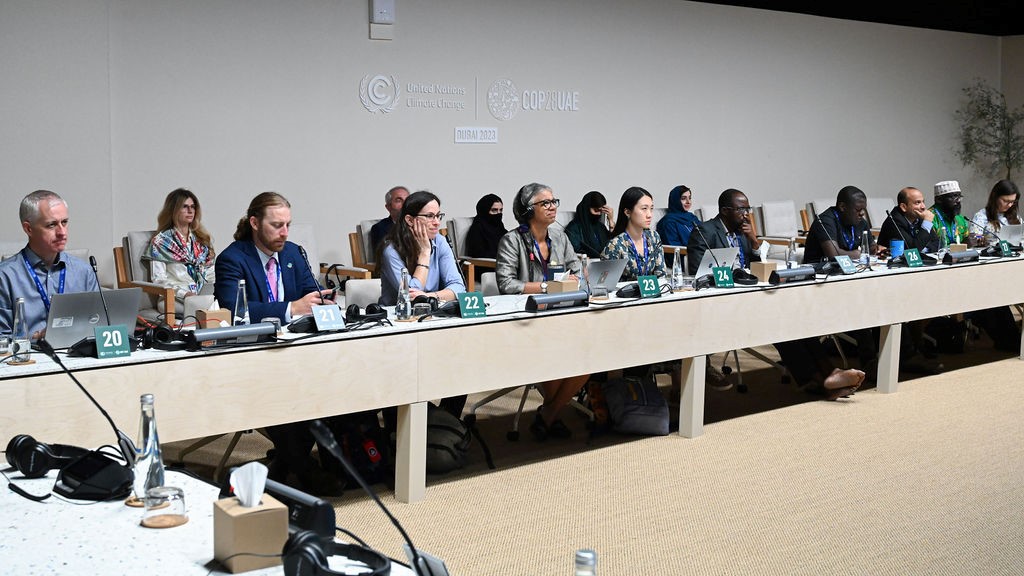
In the first meeting, Paola Visconti, Sustainability Engagement Manager at Tecnológico de Monterrey in Mexico, gathered Latin American Universities present at COP28 to learn how they engage at COPs and how the region can have a more robust presence at COPs, considering the future COP30 in Brazil. Participants at the meeting agreed that the region should unite efforts to enhance participation and unite voices to share experiences, learn from each other, give visibility of the great work already being done by Higher Education in the region and catalyze climate action in Latin America.
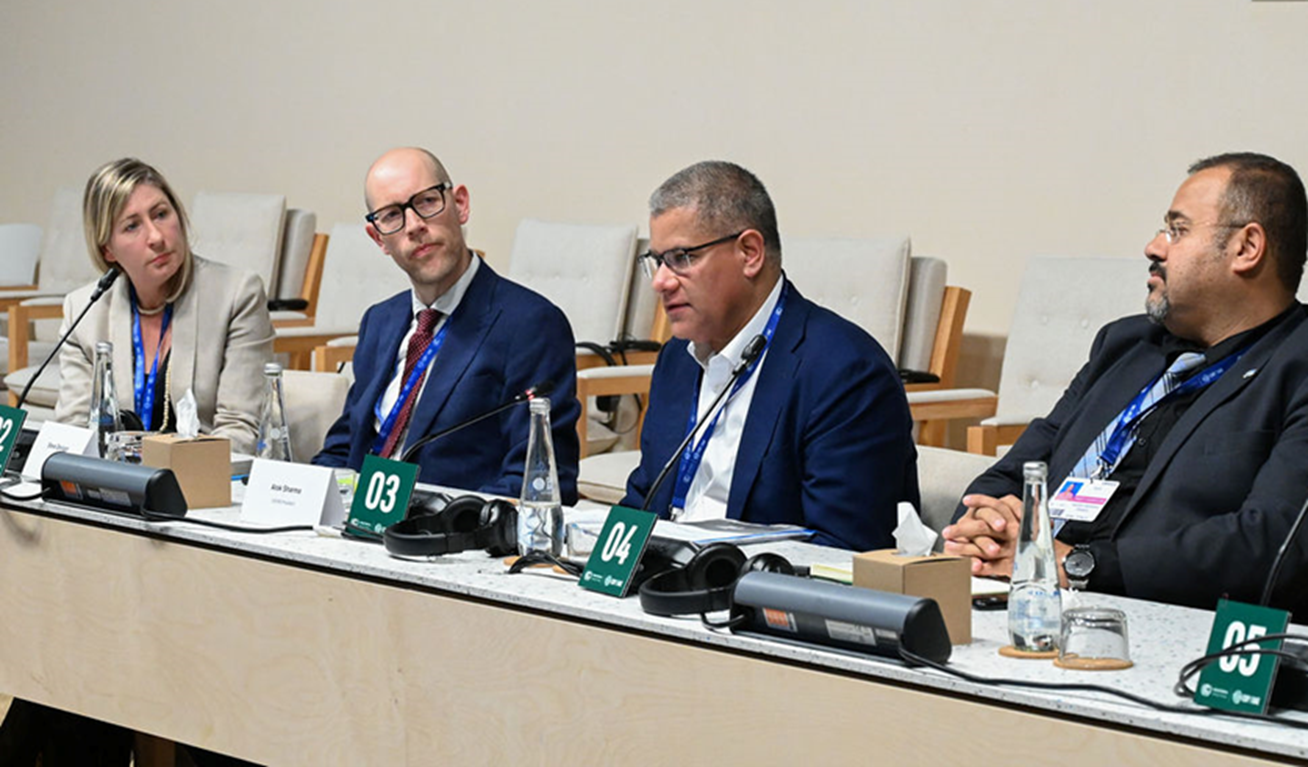
In the second, Kristy Faccer, ISCN Senior Fellow and Director of the President’s Advisory Committee on Environment, Climate Change and Sustainability at the University of Toronto co-convened (with Cambridge University) representatives from more than 20 Higher Education networks and UN partner groups to identify sector-contributions to the High Level Champions and Marrakech Partnership priorities for climate action.

Delegates reached agreement on an overarching vision for higher education, discussed global opportunities and set the foundation for sector-led climate contributions in the coming year and going into COP29 and COP30.
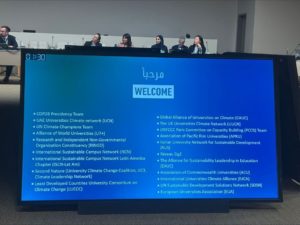
Reducing flight-related emissions through virtual conferences?
The University of Zurich is actively and consistently committed to the global goal of sustainable development. The Implementation Strategy 2030 for the Sustainability Policy sets the goal of achieving climate neutrality by 2030.
Air travel causes a large share of greenhouse gas (GHG) emissions in UZH's regular operations. Before the Covid-19 pandemic, this share was more than 35 percent (2018/2019) of UZH’s total GHG emissions. For this reason, the Executive Board of the University has decided that emissions from air travel must not increase to more than 60 percent in 2022, compared to the pre-pandemic level of 2018/19 – which was reached. Furthermore, emissions must decrease by 3 percent annually until 2030, resulting in an overall reduction of 53 percent.
Besides the measures taken by faculties and units of UZH to reduce flight-related GHG emissions, the constructive engagement of UZH’s employees is important to achieve climate neutrality – and UZH staff is engaged. This was evident from over 80 registrations for the information event “Smarter than flying - How to organize successful virtual conferences”, held in November 2023.
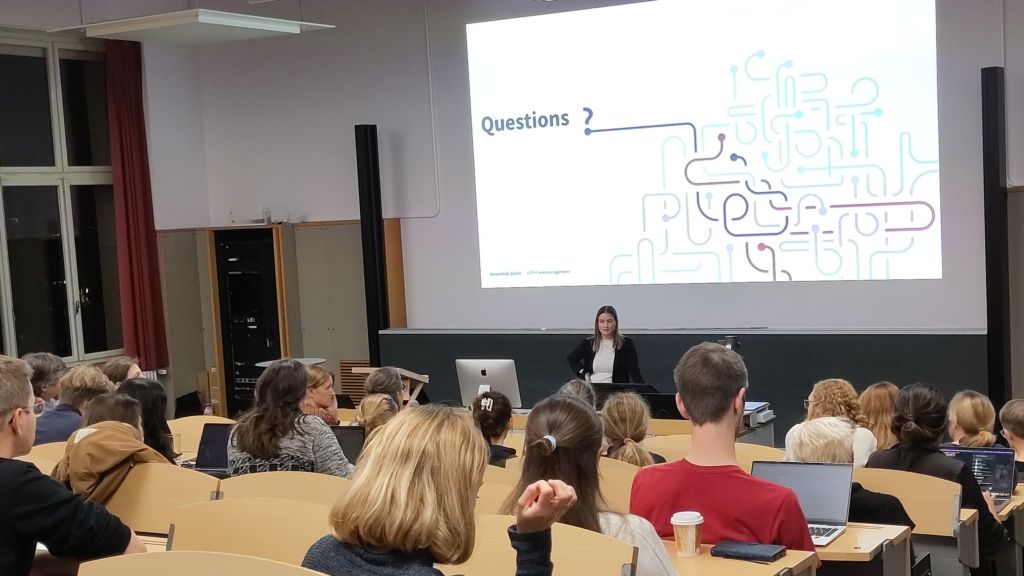
Virtual conferences have become increasingly important for the reduction of flight-related GHG emissions. In addition, virtual conferences have other advantages, such as generally lower costs (e. g. participation fees, travel to and from the event, accommodation, meals omit), greater accessibility and inclusivity, reduced overall time necessary for participation, less stress with travelling and jet lag and the fast availability of recordings afterwards. However, in order to become a successful networking event, virtual conferences must be seen and planned as their own form of interaction. If only a face-to-face event is transferred to the digital setting, this often leads not only to frustration but also to technical problems and a decline in attention and participation.
Thus, at the information event three lectures by experts examined virtual conferences from different perspectives. Pascale Hohl (Head of Event Management UZH) showed current trends and common tools and explained what resources UZH can offer for the planning and execution of virtual conferences. Professor Michael Zemp (Director World Glacier Monitoring Service, Geographical Institute UZH) presented best practice examples of hybrid and virtual conferences he organized and/or took part in. Ariane Wenger (PhD student, Td-Lab ETHZ) provided insights into research results on perceived advantages and disadvantages of virtual conferences as well as on networking efficacy during virtual conferences. The slides and audio recording can be found online on the website of the UZH Sustainability Team.
Exploring living labs: innovating for water security
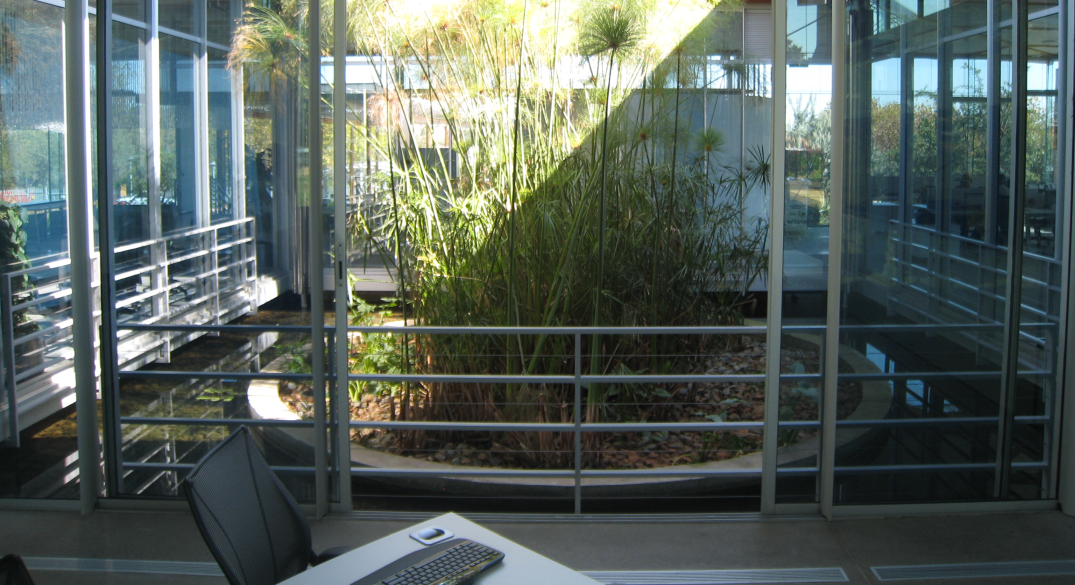
Living labs – where experimentation meets innovation – are sparking a revolution in problem-solving. These real-life environments champion co-creation and open innovation, offering a ground for the birth of novel ideas. Defined by the European Network of Living Labs as user-centric innovation ecosystems, they are the breeding ground for collaborative research and innovation within real communities. Their rising prominence owes to their unique ability to tackle intricate challenges while considering the needs of diverse stakeholders-citizens, governments, industry, and academia.
In the context of addressing the pressing challenge of water security in the 21st century, one proposed solution is water-sensitive design. This approach revolves around diversifying water sources, leveraging both centralized and decentralized infrastructure, nurturing ecosystem services in built and natural environments, and fostering socio-political support for sustainable water-centric decision-making. Water-themed living labs are a tangible manifestation of this vision. These labs serve as dynamic testing grounds, focusing on realizing the objectives of water-sensitive design. They provide a real-world canvas for exploring and refining innovative ideas aimed at ensuring water security.
A student from the Future Water Institute at the University of Cape Town, South Africa is conducting a study that seeks to unravel the key characteristics of living labs honing in on water-sensitive innovations. The study launches with a brief survey, an initial phase in a comprehensive case study. Its findings will guide future engagements, shaping the narrative of water-sensitive innovations in these labs.
If you are actively involved in a water-themed living lab and over 18, we extend our warm invitation to participate in a survey. The survey is anticipated to take approximately 3 minutes. Your anticipated participation is immensely valued – its key to unlocking innovative solutions for water security!
If you have any questions please email [email protected] and we will forward your request.
University of Zurich publishes third sustainability report
The University of Zurich (UZH) has published its third Sustainability Report. Based for the first time on the goals of UZH’s “Implementation Strategy 2030 for the Sustainability Policy”, adopted in fall 2020, the report tracks the implementation of targets and measures.

UZH has committed itself to becoming climate-neutral by 2030. Over the past two years, the university was able to substantially reduce its overall greenhouse gas (GHG) emissions. In 2022, emissions were 14 % lower than in 2018, and in 2021 a full 38 % lower – although the 2021 decrease is largely attributed to the pandemic.
“The reporting years 2021/2022 were characterized by multiple crises. It is becoming increasingly clear that sustainability requires investment in crisis resilience,”
Prof. Lorenz M. Hilty, Sustainability Delegate at UZH.
GHG emission savings primarily through changes concerning air travel
Compared to the pre-pandemic years 2018 and 2019, UZH was able to reduce air-travel-related GHG emissions. The main goal for 2022 was to not exceed 60% of pre-pandemic levels, and it was achieved.
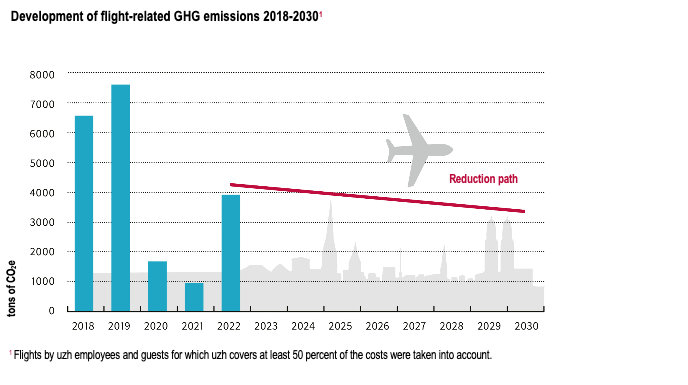
The goal applied to all faculties, which were tasked with developing their own action plans to reduce air travel or related emissions. The Faculty of Arts and Social Sciences, for example, introduced an internal levy on air travel, charging CHF 130 per tonne of CO2 emitted and a minimum of CHF 130 per flight.
For every CHF 130 raised, CHF 100 is paid into a fund that the faculty can use to finance travel by train and bus instead, doubling the incentive effect. The negotiations for that levy went surprisingly smoothly, as the faculty dean, Prof. Katharina Michaelowa, reports on sustainability.uzh.ch (in German).
Researchers from the Digital Society Initiative (DSI) organized a European hub for the three-day Sunbelt conference that took place in Australia. By following the conference from this hub instead of traveling down under, European academics avoided around 38 tonnes of greenhouse gas emissions.
These examples show that sustainability starts with the engagement of the people involved. More information about air travel at UZH is presented on the UZH sustainability website.
Interdisciplinary research is key to sustainable development
Over 30 research-related groups, centers, collaborations and networks of UZH are presented as contributors to sustainability in the third Sustainability Report.
UZH considers interdisciplinary research to be key to sustainable development. 13 University Research Priority Programs, 25 Centers of Competence and many other research centers or networks serve to strengthen interdisciplinary research at UZH. In addition, individual faculty members and research groups cooperate with each other or with external partners in inter- or transdisciplinary projects.
The Center for Crisis Competence founded in 2021 is one of the interdisciplinary research centers at UZH that contributes to sustainable development. As crises put sustainability measures at risk, crisis resilience is an important factor contributing to a sustainable future. This resilience requires a sound understanding of the nature of crises and ways to deal with them. For this purpose, the Center for Crisis Competence brings together experts from all seven UZH faculties.
More information on sustainability research can be found online or within the Sustainability Report 2021/2022 (in German).
Teaching for a sustainable future
27,895 students were enrolled at UZH, Switzerland’s largest university, in the Fall Semester of 2022. An important part of UZH’s sustainability strategy is anchored in teaching. Because education should prepare people for the profound changes to come, courses at UZH aim to enable students to understand their subject area in the context of sustainable development.
The “Grüne Vorlesungsverzeichnis” (green course catalogue) automatically filters courses that address topics related to sustainable development. The aim is to provide students and other interested parties with a quick overview and access to courses related to sustainability.
During the reporting period of the third Sustainability Report, the UZH Sustainability Team designed the inter- and transdisciplinary study week “Sustainable Development and Transformation” for interested Master’s students. The study week was first implemented in September 2023 and is planned to be repeated annually.
Other examples of teaching in a sustainable context presented in the third Sustainability Report include the public lecture series “Sustainability Now!” and the new biodiversity degree program, which is unique in Switzerland.
Outreach
UZH is part of many national and international networks to coordinate efforts and commitments to sustainable development. As an example, the third Sustainability Report presents the new networking partner Blue Community, which UZH joined in May 2022. Read more about UZH’s sustainability networks and the four pillars of the Blue Community.
Harvard releases updated Sustainability Action Plan
Harvard University’s updated Sustainability Action Plan, launched in May, provides a holistic framework for Harvard to adopt best practices that not only protect the climate and environment but advance a more equitable society and promote the wellbeing of people on our campus and all over the world now and in the future. The interconnections of climate, equity and health shape this Plan and are essential to sustainability at Harvard.
This high-level vision commits Harvard to reimagining the day-to-day practices and operations at Harvard as we move toward Goal Zero – to be fossil fuel-free by 2050 – as well as our bridging goal to become fossil fuel-neutral by 2026. We are reimagining our energy systems, building standards, campus operations and purchases, and the vast research and teaching opportunities in order to create a sustainable future. Harvard has a responsibility and opportunity to leverage the organization’s resources to address past adverse impacts and accelerate positive action on sustainability.
Harvard is actively advancing sustainability research and piloting solutions on campus that can be scaled globally. Drawing on more than three decades of work to advance sustainability at Harvard, the University will engage its faculty, students, and staff across its Schools, Institutes and Business Units—more than 50,000 people—to continue to leverage Harvard’s campus as a living laboratory: inventing, testing, and validating new systems and practices. The University’s exceptional students and faculty are collaborating across disciplines, through initiatives like the Salata Institute for Climate and Sustainability, Sustainability Living Lab projects, as well as in classrooms and co-curricular initiatives.
The Sustainability Action Plan was developed collaboratively with the Presidential Committee on Sustainability, the Council of Student Sustainability Leaders, the Office for Sustainability, and hundreds of other community members. The Plan is designed as a living document that will be strengthened over time as the world discovers new technologies, solutions, and strategies. Harvard will track and publicly share its sustainability progress annually, moving toward new goals and bolder timelines whenever possible.
Harvard recognizes its unique responsibility and opportunity to accelerate change. Together, we will reimagine and redefine how we power, how we build, how we operate, and how we lead. We hope you will join us in building a more resilient, sustainable, and equitable community on our campus and beyond.
DTU publishes its first sustainability report
Under the heading 'We develop technologies for people and sustainable change', DTU has published a report on the University's sustainability.
DTU, Technical University of Denmark, has worked with sustainability for a long time – in research as well as in day-to-day operations. But now, for the first time, DTU is publishing a report documenting climate accounts, consumption of resources and recycling, as well as the degree of socially sustainable surroundings and behavior.
The Sustainability Report 2022 is based on ESG (Environmental, Social, Governance) data, i.e. data on environmental, social, and governance issues, which together provide a status on DTU's sustainability conditions and indicate the direction of DTU's ambitions. The report describes many of the initiatives DTU has taken and will continue to take to create a sustainable university.
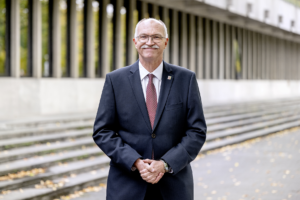
"The World is changing – and so is our perception of sustainability. At DTU, we constantly want to develop in a more sustainable direction. Sustainability is an integral part of how DTU educates engineers as well as in our research and development of new technologies. The sustainable dimension is crucial," says DTU President Anders Bjarklev.
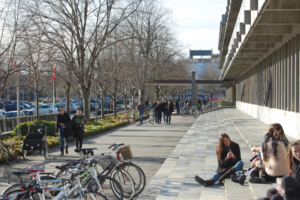
Good start, but we need to go further
The report is based on a review of relevant data, policies, and focus areas with a focus on operational data in the green area, environment data, as well as initiatives within good business conduct and integrity. The report is a snapshot of the current situation, but also sets the direction for the coming years.
Research and development of world-class technology is resource-intensive, as the University relies on laboratories and research infrastructure that consume energy and raw materials. But this does not mean that the University does not have ambitions to reduce resource consumption and create socially sustainable surroundings and behavior.
"At DTU, we believe that openness and transparency are important. This is especially true in work with sustainability. Both students and staff are aware of their habits and want to act sustainably. Therefore, we also try to create a physical environment that allows everyone on campus to minimize their own use of resources. It is a work we have started, but we can go much further," says Anders Bjarklev.
Read more in the report: https://www.dtu.dk/english/about/strategy-policy/sustainability-report
Technical University of Munich appoints VP Sustainable Transformation and publishes sustainability strategy
The Technical University of Munich (TUM) has anchored the topic of sustainability in university leadership to ensure robust realization of its Sustainable Futures Strategy. Werner Lang, TUM Professor of Energy Efficient and Sustainable Design and Building, is the new TUM Vice President Sustainable Transformation after already winning the TUM Sustainability Award 2022.
TUM has declared sustainability to be an integral guiding vision for its plan of action. President Prof. Thomas F. Hofmann recently presented the TUM Sustainable Futures Strategy 2030 at the first TUM Sustainability Day in October 2022. With six action fields, it addresses the challenges of the sustainable transformation of the university and society with a “whole-institution-approach”.
Research: TUM encourages and supports research activities that contribute to the sustainable transformation of society. To this end, the university provides targeted support for the digitalization and scaling of developed solution strategies while taking ecological, political and societal aspects into account.
Education and Lifelong Learning: TUM helps students, employees and alumni as well as external expert and management staff develop their own understanding of sustainability. Above and beyond the spectrum of university teaching and continuing education, TUM conveys competencies in data-based and evidence-based sustainable behaviors.
Entrepreneurship and Innovation: TUM promotes and empowers founders in leveraging their own entrepreneurial opportunities to accelerate sustainable transformation. In the future, innovative technologies, products and services as well as new business models are to unite economic success with ecological and social responsibility.
Campus Operations and Resource Management: As an organization, the university itself is to serve as an exemplary model for the deployment of a sustainable and resilient society. The university's tasks include reducing consumption of energy and resources, cutting greenhouse gas emissions, increasing energy and resource efficiency and reduced-emission mobility as well as improving equality, diversity, inclusion and providing healthy working and studying conditions.
Governance and University Community: TUM intends to motivate its students and members of the university community to actively participate by strategically anchoring the Sustainability Strategy at the General Management level and by implementing open, participatory decision-making processes.
Communication and Global Engagement: TUM intends to create an even greater societal awareness of sustainability with transparent and self-critical communication and to take on a proactive role in the transformation process. To this ends, the university combines its research and teaching agenda with entrepreneurial drive in the fight against climate change and pollution, poverty and inequality as well as against the lack of access to proper health care and education.
With the its Sustainable Futures Strategy 2030, TUM is making the university an innovative place for sustainable transformation – on its campuses and beyond.
"We intend to secure the resilience of our university and shape the sustainable transformation of society with responsibility, talented individuals, scientific excellence and innovative power. We are making TUM a catalyst for the tremendous changes inevitably emerging in our pursuit of sustainable development, taking ecological limitations, economic constancy and social justice into account." – TUM President Thomas F. Hofmann
Photo copyright: Andreas Heddergott /TUM

